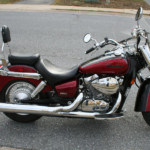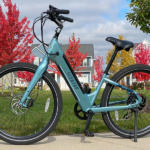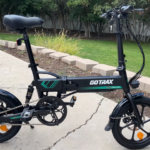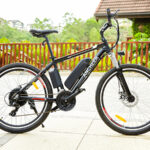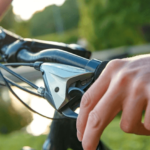Here is the guidness to ride a bike
Learning to ride a bike is an exciting and essential skill that brings freedom and enjoyment. Whether you’re an adult learning for the first time or teaching a child, the process is simpler than you might think. Here’s a step-by-step guide on how to ride a bike.
Step 1: Choose the Right Bike
Fit and Comfort: Make sure the bicycle you choose is the right size for you. When sitting on the bike seat, you should be able to touch the ground with your toes. A properly fitting bicycle will give you better control and stability.
- Bike type: For beginners, a basic bicycle with a comfortable seat and easy-to-use brakes is ideal.
- Helmet: Always wear a helmet to protect your head, even for short rides.
Step 2: Start in a Safe, Open Space
Flat Surface: Find a smooth and flat area like a park or an empty parking lot to practice. Avoid busy roads or areas with obstacles.
- Balance Practice: Before riding, practice balancing by sitting on the bicycle and walking it forward with your feet on the ground. This helps you get a feel for the bike’s movement.
- Pedals: If you’re nervous, remove the pedals temporarily and practice gliding with your feet.
Step 3: Learn to Balance and Glide
Push Off and Glide: Once you feel comfortable balancing, try pushing off with your feet and gliding. Lift your feet off the ground and try to keep your balance for as long as possible. The longer you can glide, the better your balance.
- Steering: Gently steer the bike left and right to get comfortable with the bicycle movement.
Step 4: Pedal and Ride
Start Pedaling: Once you’ve mastered gliding and balancing, it’s time to add pedaling. Place one foot on the pedal and push off with the other foot to start moving. Then place both feet on the pedals and begin pedaling.
- Look Ahead: Always look ahead at where you’re going, not down at your feet. This helps with steering and balance.
- Slow and Steady: Keep your pace slow at first until you feel more confident.
Step 5: Practice Braking and Turning
Braking: Learn how to use the brakes to stop smoothly. Squeeze both brakes gently but evenly. Avoid slamming the brakes to prevent sudden stops.
- Turning: Practice gentle turns by leaning slightly in the direction you want to go while maintaining balance. The more you practice, the more natural turning will feel.


